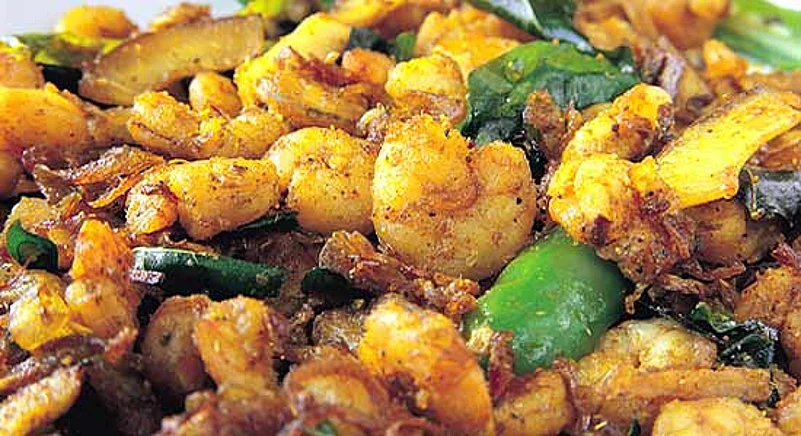Fish, to taste right, should swim three times: in water, in butter and in wine. This Polish proverb would delight Saraswat Brahmins who revere fish as the very soul of their cuisine. However, to strike the right chord, they would substitute oil for butter and coconut milk for wine. But, as in the proverb, they would emphasise the centrality of fish.
Many communities in the country consume fish too. But the Saraswats consider themselves as a cut above the rest. The former, they reckon, regard fish as no more than a source of nutrition whereas for them it is the rarest of the rare gifts that nature can bestow on humankind. And they are grateful that nature—the sea, the ocean, the creek—has singled them out as the most privileged beneficiaries of its largesse.
Most Saraswats trace their roots to a village or town located somewhere on a long stretch of the western coast that begins roughly at Mumbai and, after crossing Goa, ends at the southern-most tip of Karnataka. Nowhere else in India is fish and other seafood more bountiful and varied: white and black pomfret, mackerel, tuna, shark, salmon, Bombay duck, kingfish, sardines, shrimps, prawns, clams, roe, crabs, oysters and other big and small denizens of the salty waters. Add to this the availability in abundance of the other crucial elements in Saraswat cuisine—coconut, kokum fruit, mangoes, bananas, jackfruit, dals and, above all, rice.
Every dish contains coconut in some form. But it is the choice of spices and proportion of seasonings—turmeric, chilli powder, variations of the garam masala, powdered cumin and coriander, poppy and caraway seeds, cinnamon, garlic, ginger, star anise, cardamom, fenugreek, peppercorns, mace, nutmeg, Schezwan pepper—that sets the cuisine apart from non-Saraswat food. One more specific trait: milk is extracted from the coconut paste—that also contains garlic, green chillies and carom seeds (ajwain)—to prepare the grand finale of a fish meal—kokum or sol kadhi eaten with steaming rice or drunk straight from a receptacle.
From childhood, a Saraswat child is witness to the passion with which a fish meal is discussed, prepared and consumed. Fish is generally avoided on Mondays and Thursdays for religious reasons. All other days are kosher, especially holidays. The man of the house heads to the fish market, inspects the day’s catch with an ostentatious display of expertise, haggles with the fisherwoman about the price and, trophies in hand, returns home in the sure knowledge that he has outsmarted other dim wits in the bazaar. Meanwhile, the ladies are busy with their preparations. The meticulous attention they lavish on them is akin to one they would lavish on an auspicious ceremony.
Spiritual bliss for a Saraswat means a fish or crab curry, a piece of fried fish, a dry fish chutney, two or three kinds of vegetables, roe or oyster fritters (pakoras), a heap of stuffed clams and the kokum or sol kadhi—all consumed with copious helpings of rice before retiring for a siesta. Small wonder then that Bakibab Borkar, Goa’s poet laureate, was inspired to write: ‘Please, Sir, Mr God of Death /Don’t make it my turn today/ not today/ there’s fish curry for dinner.’ To drive home his point, the same poet wrote: ‘When I die, I would like my body to be consigned to the ocean. For, all my life I’ve eaten fish; now let them eat me.’
(The author is consulting editor with the Times of India.)
























